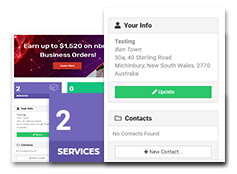Everything you need to know about VoIP
You’ve Google’d phone upgrades, you’re greeted with pages and pages of search results telling you that VoIP is taking over the communication world, but what exactly is VoIP and why does your business need it? Follow our beginners guide to VoIP and learn exactly what VoIP is, who needs it, and why businesses globally are making the switch.
Teach me the basics! What does VoIP mean?
VoIP stands for Voice over Internet Protocol, which means that telephone services are able to be made over the internet. With the innovative nature of technology and the increase in broadband and internet technologies VoIP has pathed the way for simple, efficient and streamlined communication
I understand what VoIP is, but why do I need it?
– You need to ask yourself, and your business a couple of questions before making the switch to VoIP; no change should ever be as easy as pressing a button. Ask yourself the following:
– Am I starting a new business? Is my business growing? Will I need an efficient and uniformed communication system across different branches of my business?
– How many phone calls and what type of phone calls do I make a day? How much are these calls costing my business?
– Am I due for a hardware refresh? My onsite hardware is ancient but I’m unsure what I should upgrade to?
– I’ve recently upgraded my internet or am looking to upgrade my internet, I should have a phone system that is just as fast, shouldn’t I?
– Is NBN available or soon to be? When it is the old analog copper phone lines will be removed so any analog phone systems will stop working.
The chances are you’re paying too much for your calls and your phone system could be outdated. Take a look at a few of the main reasons for moving to a VoIP solution:
Savings: VoIP can save you up to 50% off your current call costs. Ask your provider for a cost comparison to see for yourself
Features: One phone system with a range of features including voicemail, call transfer, free inter-office calls, conferencing, call screening, virtual assistance, and more!
Mobility: Employees are able to turn any mobile device into a business phone, they can take business calls outside of the office
Control: With VoIP you’re in complete control and have access to advanced reporting statistics, allowing you to make informed business decisions
The benefits look great, but what issues do I need to consider?
There are questions you will need to ask your service provider to ensure there is complete transparency and understanding of how VoIP operates and the issues that may arise in the future. Here is what you need to ask:
– What will my call quality be like and what influences will jeopardise my call quality?
– If something was to happen to my business internet, will I still be able to make calls?
– If my VoIP service is down, will I receive any compensation? What are the SLA’s?
– Can I keep my existing phone number? Or will I need to change all existing materials that currently have my number on them?
– Will I be locked into a contract? If so, how long?
– Can others see that I am calling from a VoIP service?
– Is VoIP suitable for my small/mid/enterprise sized business?
– Are there any privacy issues I should be concerned about?
I’ve raised any concerns with my service provider, but is my internet quick and reliable to handle VoIP?
In order to have an optimal VoIP experience, a strong internet connection is an absolute essential. Here is what you need to know about speed and reliability and how it influences VoIP:
– My internet is ADSL: Suitable for small-to-medium business
– My internet is NBN: Suitable for mid-large sized businesses
– My internet is Ethernet: Suitable for businesses of all sizes
When it comes to VoIP, the faster the internet, the better the service. VoIP is charged via data consumption, much the same as emailing and file downloading. If you’re worried about your internet connection and speed, your service provider should be able to advise and deliver on your requirements.
I’m ready to make the move to VoIP, how do I pick the right provider?
From your initial search, you’re well aware of the thousands of VoIP providers out there, so how do you pick the one that is right for you and your business? It’s important make an informed decision and not to be lured in by the bright lights and initially lucrative contracts of the big telcos. Here’s what to ask to ensure a perfect pairing:
– Can I trial the service?
– Is the service Australian based? If not, is the call quality compromised?
– Who do I contact with support queries or disputes? Will they be handled within Australia or overseas?
– What are the support hours? When will I be able to contact customer service?
– If I move or upgrade my internet to your services, will I be able to access a cheaper bundled price?
– If I’m having trouble managing my VoIP service, will my provider be able to assist me in managing expenditure?
– May I please review your VoIP SLA’s, Terms & Conditions and Privacy Agreement?
I’ve made the switch, I’ve picked the provider, what do I need to know about using my VoIP service?
Hopefully through your research you’ve picked a provider who understands your needs and provides a great support service. However, if you do ever have troubles using your VoIP system, here a few troubleshooting tips you can do on your own:
– Try rebooting by turning your power off and on again for each piece of VoIP equipmen
– Ensure cables are connected and switched on
– Double check your internet connection is working
– Ensure your router is configured correctly for VoIP
– Contact your VoIP provider if you are concerned with any problems and are unable to solve them through rebooting and checking connections
I have more questions, who do I talk to?
If you want to know more about VoIP or anything in the beginners’ guide, talk to Hosted Network.
 Contact us
Contact us  Partner Login
Partner Login  Service Status
Service Status 


 August 24, 2015
August 24, 2015
 Naomi Rheinberger
Naomi Rheinberger
 4 min
4 min